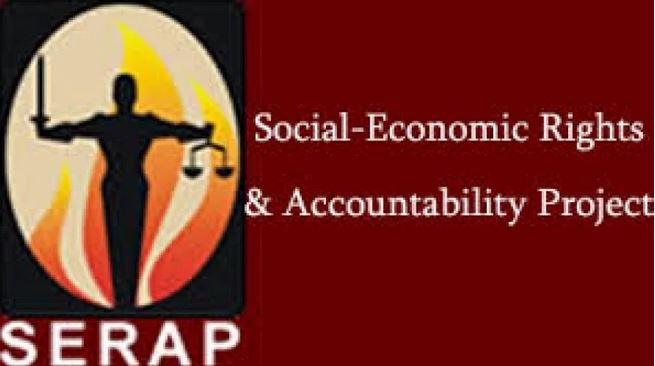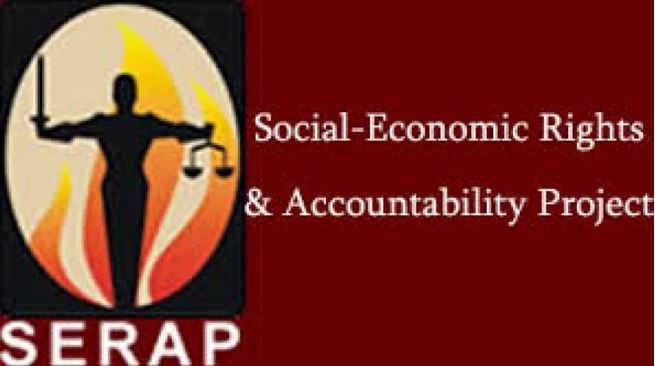Governors, FCT Minister Wike Must Explain How N14Trillion Fuel Subsidy Savings Were Spent — SERAP
The Socio-Economic Rights and Accountability Project (SERAP) has urged Nigeria’s 36 state governors and the Minister of the Federal Capital Territory, Nyesom Wike, to disclose how the estimated N14 trillion in fuel subsidy savings allocated from the Federation Account Allocation Committee (FAAC) has been spent.
The organisation urged the governors and the FCT minister to disclose the specific projects funded with the money, their locations, implementation progress, and completion reports where available.
SERAP also requested information on how future fuel subsidy savings to be received through FAAC would be utilised, including planned projects and budgetary allocations.
SERAP also urged them to “publicly invite the Independent Corrupt Practices and Other Related Offences Commission (ICPC) and Economic and Financial Crimes Commission (EFCC) to track and monitor the spending of the fuel subsidy savings collected by you, to ensure that the money is not diverted into private pockets.”
The 36 governors and the FCT minister have reportedly collected trillions of naira from FAAC allocations as fuel subsidy savings since mid-2023. But the increased allocations have not translated into improved access to basic public services, such as quality healthcare and education for poor and vulnerable Nigerians.
In the Freedom of Information requests dated October 4, 2025, and signed by SERAP Deputy Director Kolawole Oluwadare, the organisation stated: “There is a legitimate public interest for governors and the FCT minister to urgently explain how they have spent the money they have so far collected from the subsidy savings.
“The savings from the removal of fuel subsidy ought to be spent solely for the benefit of the poor and vulnerable Nigerians who are bearing the brunt of the removal. Transparency in the spending of the money would help to avoid a morally repugnant result of double jeopardy on these Nigerians.”
The organisation lamented that several states “including your state are also reportedly spending public funds which may include fuel subsidy savings to fund unnecessary travels, buy exotic and bulletproof cars and generally fund the lavish lifestyles of politicians.”
“We would be grateful if the recommended measures are taken within 7 days of the receipt and/or publication of this letter. If we have not heard from you by then, SERAP shall consider appropriate legal actions to compel your state and the FCT to comply with our request in the public interest,” it warned.
SERAP said Nigerians are entitled to know how state governments and the Federal Capital Territory are spending funds saved from the removal of fuel subsidy, describing transparency as a constitutional and human right obligation.
The organisation noted that despite a sharp rise in allocations from the Federation Account Allocation Committee (FAAC), which distributed N28.78 trillion in 2024, a 79 per cent increase from the previous year, millions of Nigerians have yet to feel any positive impact.
It added that many states still owe workers’ salaries and pensions, while essential public services remain poor.
SERAP warned that corruption and mismanagement of public funds have eroded public trust, citing constitutional provisions that mandate all levels of government to promote accountability and serve the common good.
The group also referenced Nigeria’s obligations under the UN Convention Against Corruption and the Freedom of Information Act, stressing that citizens have the right to access details of how public resources are managed.
It further recalled a recent Supreme Court ruling affirming that the Freedom of Information Act applies to all public institutions, including state governments, and warned that failure to disclose how subsidy savings are spent would amount to a violation of that judgment.
“SERAP urges you to promptly uphold the Supreme Court judgment by urgently accounting for how your state is spending the money it collected from the subsidy savings. The Supreme Court has pointed the way for state governors to show accountability and commitment to transparency in the spending of public funds,” it said.
“Similarly, your state has clear legal obligations to provide the information sought as prescribed by provisions of the Nigerian Constitution and the African Charter on Human and Peoples’ Rights (Ratification and. Enforcement) Act.”

